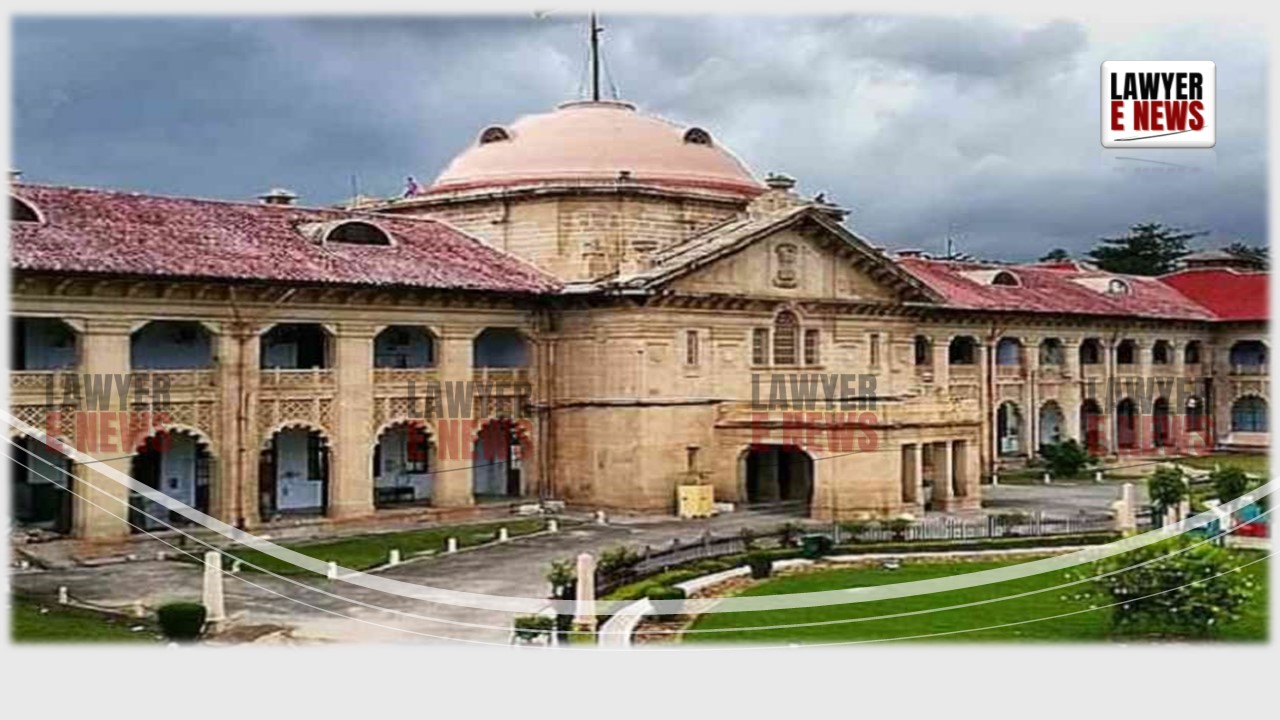-
by sayum
17 February 2026 8:32 AM



“Once the University permitted the student to appear in the exam and he passed, it cannot withhold his result citing eligibility concerns”— In a strongly worded judgment Allahabad High Court dismissed a special appeal filed by Mahatma Jyotiba Phule Rohilkhand University, affirming the single judge’s direction to issue the withheld LL.B. mark sheet and degree to student Firoz Ahmad. The Division Bench, led by Chief Justice Arun Bhansali and Justice Kshitij Shailendra, held that the University cannot “play with the career of a student at its convenience” after allowing him to appear in the back paper exam despite exceeding the maximum duration of the course.
“The University cannot be permitted to take refuge behind its own inaction”
The Court was hearing Special Appeal No. 996 of 2024 filed by the Registrar of the University against the order dated 30.09.2024 by a learned Single Judge, which had allowed Firoz Ahmad’s writ petition and directed issuance of his LL.B. mark sheet and degree. Ahmad had enrolled in a three-year LL.B. course in 2016-17 at Classic College of Law, Bareilly. Though he cleared all semesters, he had one back paper in the sixth semester, which he passed in 2023. However, the University withheld his result on the ground that he had exceeded the six-year period prescribed under Ordinance 7(c)(3) of the LL.B. Regulations.
The Court, however, took strong exception to the conduct of the University. It held: “If the University or the College took their task so casually and, by all means, allowed the respondent to appear in the back paper examination, they cannot get a defence arising out of their own action or inaction.”
“A student cannot suffer because of the University's administrative lapses”
The Court emphasized that once the student’s exam form was accepted, fees were deposited, an admit card was issued, and the exam was conducted and passed—then the University had no legal or moral right to withhold the result on technical grounds.
“Both had sufficient time to scrutinise or adjudge the respondent’s eligibility... The University cannot take a defence out of such inaction qua scrutiny as might be warranted.”
The Court noted that the exam form was submitted on 28.05.2023, admit card issued on 26.06.2023, and the exam held on 01.07.2023. The result was ready but not released, invoking Clause 4 of the provisional admit card which stated: “The result shall be declared subject to eligibility of the candidate.”
Rejecting this as a blanket justification, the Court observed: “Clause 4 cannot be read in isolation but along with the totality of circumstances... It was for the University to ensure compliance of Ordinance 7(c)(3) at the form-filling stage, not after the student has passed the exam.”
“University officers are bound by statutory duty to conduct exams properly and publish results expeditiously”
Referring to Sections 13 and 16 of the U.P. State Universities Act, 1973, the Court reminded the University of its statutory obligations:
“The Vice-Chancellor shall be responsible for holding and conducting the University examinations properly and for ensuring that results are published expeditiously.”
The judgment also criticized the lack of internal checks in the online exam form system: “It was very convenient, rather necessary, for the University or the College to make provision for a window on the online form to check eligibility of a candidate at that stage.”
Relying on Supreme Court Precedents: “University estopped from questioning eligibility after allowing student to appear”
The Division Bench placed reliance on binding precedents including:
• Shri Krishnan v. Kurukshetra University, (1976) 1 SCC 311
• Sanatan Gauda v. Berhampur University, (1990) 3 SCC 23
• Guru Nanak Dev University v. Sanjay Kumar Katwal, (2009) 1 SCC 610
• Ashok Chand Singhvi v. University of Jodhpur, (1989) 1 SCC 399
The principle emerging from these judgments, as reiterated by the High Court, is clear: “Once a candidate is permitted to appear in the examination and there is no allegation of fraud or misrepresentation, the University cannot withhold the result on the pretext of belated eligibility scrutiny.”
“Technical rules cannot defeat substantive rights once the student has completed the course”
Dismissing the University’s reliance on Ordinance 7(c)(3), the Court declared that the provision cannot be used to defeat the legitimate academic claim of a student who has completed the course and passed all exams.
“The respondent has passed the concerned examination and has completed the entire LL.B. Course... the University cannot detain his result merely on the pretext that the admit card was provisional.”
The Allahabad High Court not only dismissed the University’s appeal but also issued a broader message to all educational institutions: administrative apathy cannot cost students their careers. The Court reiterated that issuance of admit card and appearance in exam creates a legitimate expectation that results will be declared, and degrees conferred, barring any proven fraud.
Date of Decision: 12 March 2025
